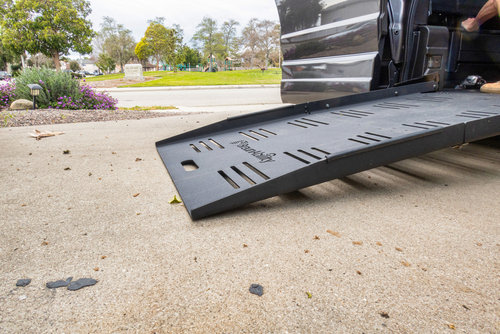
The U.S. Department of Transportation (USDOT) announced Wednesday that it had awarded more than $41 million in grants to more than a dozen states for projects designed to improve transportation access to those with disabilities and mobility challenges.
Grants were provided through two different programs, the Complete Trip – ITS4US Deployment Program and the Inclusive Design Challenge program.
“These exciting projects support the development of new innovative, inclusive, and affordable transportation technologies that address mobility and access challenges,” said U.S. Secretary of Transportation Elaine L. Chao.
Five awardees were provided more than $38 million in grants through the Complete Trip program. These grants are awarded to communities that engage in innovative business partnerships, technologies, and practices that promote independent mobility for all.
The projects funded through the Complete Trip program include more than $9 million for the Atlanta Regional Commission for its Safe Trip in Connected Transportation Network and nearly $11.5 million for the University of Washington for its Accessible Mapping Standards and Data Collaboration Drive Accessible Multimodal Active Transportation and Mobility project.
The USDOT also provided 10 semifinalists with $3 million in grants through the Inclusive Design Challenge. The semi-finalists will receive $300,000 and have 18 months to develop prototypes that make Autonomous Vehicles more accessible to individuals with disabilities through hardware or software solutions. In 2022, the department will select three winners who will split the remaining $2 million in prize money.
The DOT said that 47 projects were submitted for the Design Challenge from the automotive industry, academic institutions, and individuals in 21 states.
The winning teams included Purdue University and its “Efficient, Accessible and Safe Interaction in a Real Integrated Design Environment for Riders with disabilities (EASI RIDER)” project, and the University of Kansas and its “Optimizing Highly Automated Driving Systems for People with Cognitive Disabilities” project.